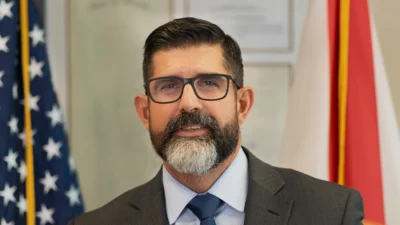Congressman Michael Waltz | Michael Waltz Official Website
Congressman Michael Waltz | Michael Waltz Official Website
WASHINGTON, D.C. – On Wednesday, the U.S. House Committee on Oversight and Accountability passed the FEHB Protection Act of 2024, introduced by U.S. Congressman Mike Waltz (FL-06) to stop fraud within the largest employer-sponsored health insurance program in the country – the Federal Employee Health Benefits (FEHB) program.
The FEHB Protection Act of 2024 codifies recommendations from the Government Accountability Office (GAO) and the Office of Inspector General (OIG) to require the Office of Personnel Management (OPM) to implement verification requirements for the FEHB program. Specifically, the bill requires federal agencies to verify that an employee is eligible to add a family member to their FEHB health coverage plan, a comprehensive audit be conducted of employee family members currently enrolled in the FEHB program, and requires OPM to disenroll any individual ineligible for the program.
"Since its inception, OPM has never audited the FEHB program nor does it even know the full extent to which this program is supporting ineligible individuals," said Waltz. “By freeing this federal program of ineligible enrollees, this bill has the potential to save American taxpayers up to $3 billion dollars a year. It is a no brainer. That is why I am proud to lead the bicameral effort in the House to stop fraudulent activity and government waste in the FEHB program to ensure eligible Americans get the health insurance they deserve.”
“I am proud that the House Oversight Committee passed Congressman Waltz’s and my bill today,” said Senator Rick Scott. “Under years of mismanagement by OPM, the FEHB program has knowingly allowed $1 billion of taxpayer money every year to be wasted with no plan or mechanism to stop it. That is unacceptable and must be fixed. There must be zero tolerance for individuals intentionally exploiting and defrauding the federal government. I appreciate Congressman Waltz’s leadership on this in the House and look forward to its passage there, in the Senate, and then being signed into law.”




 Alerts Sign-up
Alerts Sign-up